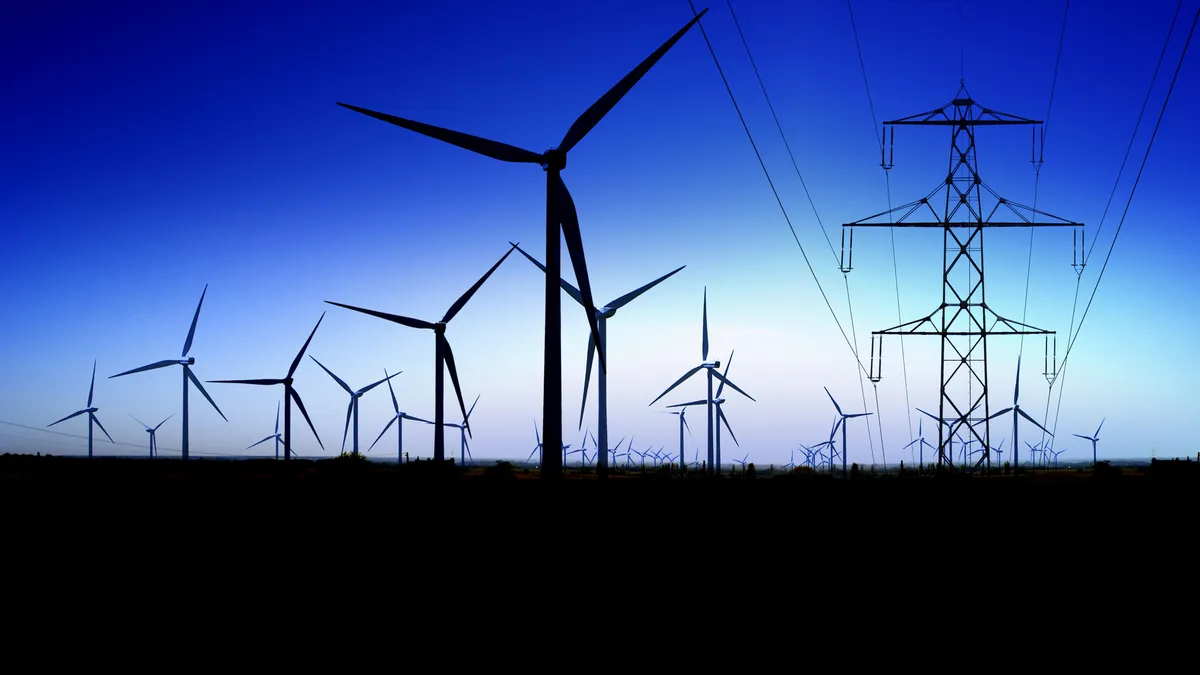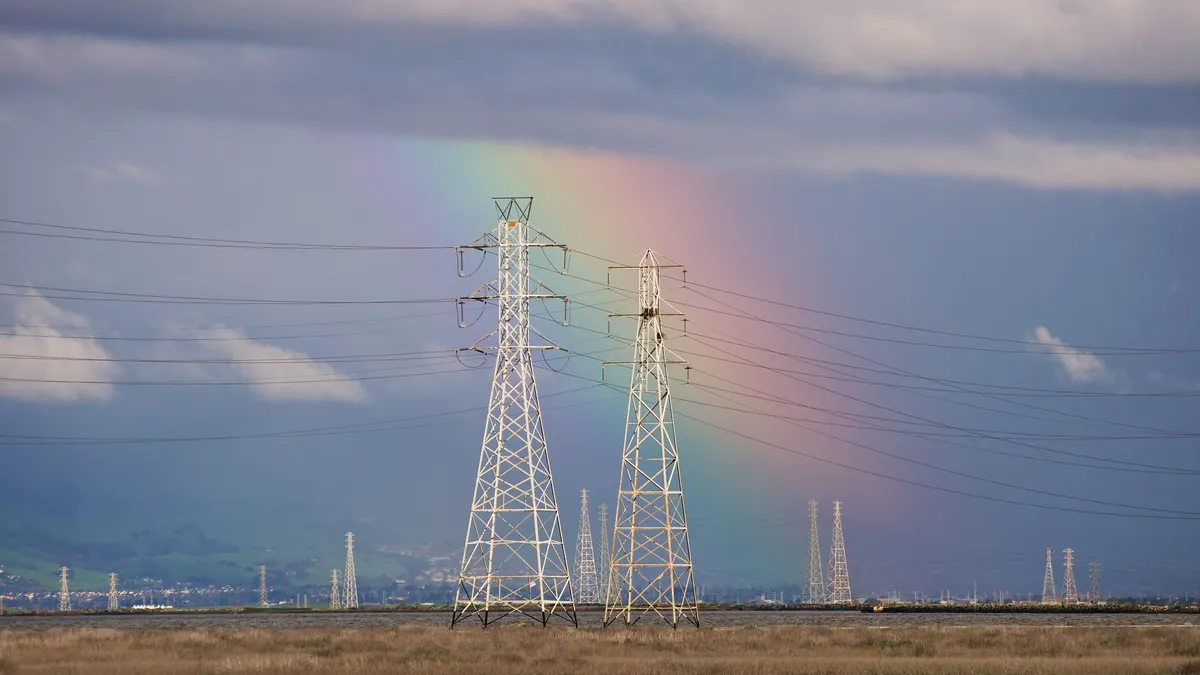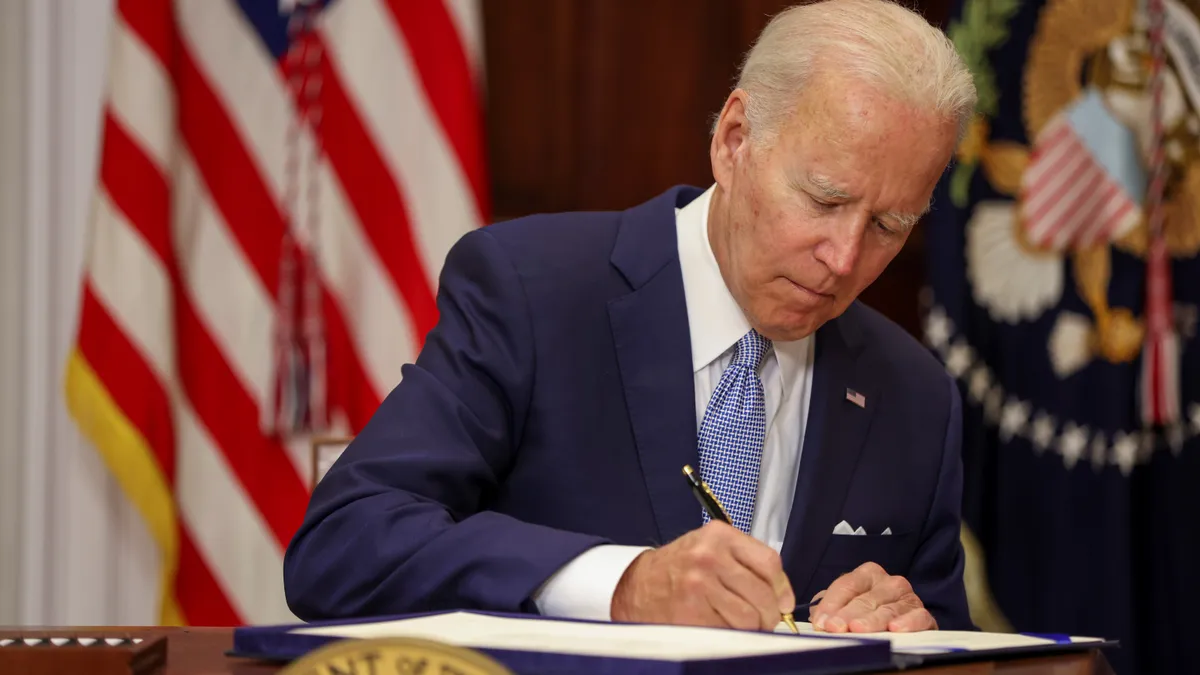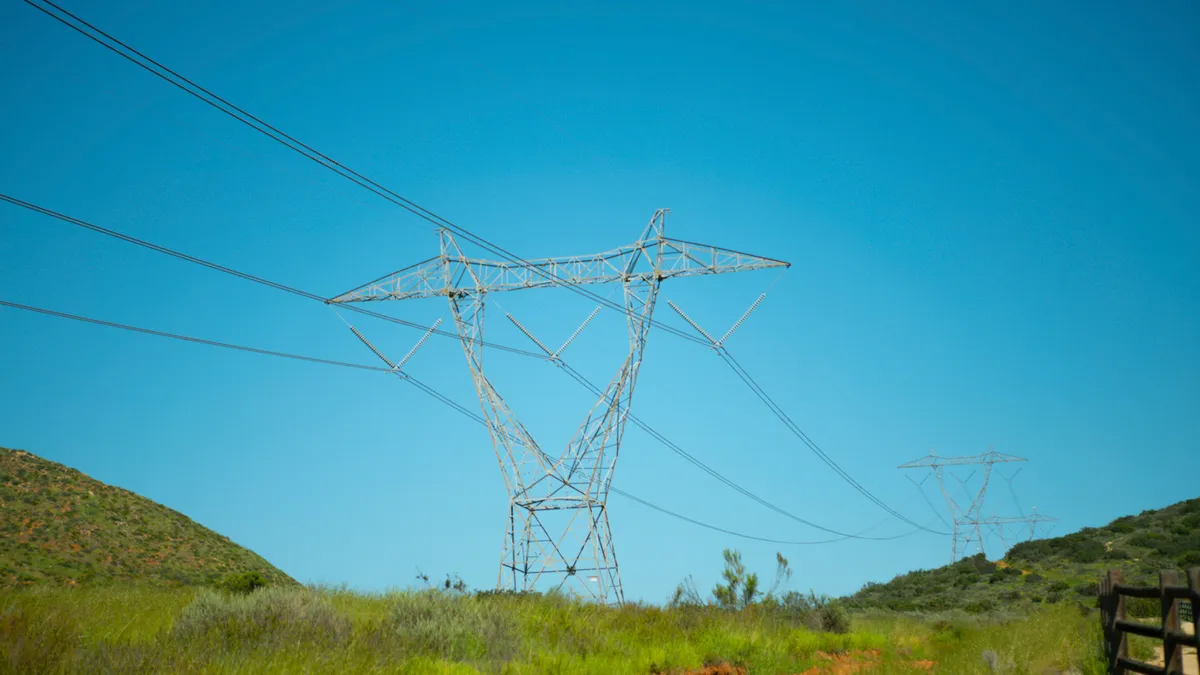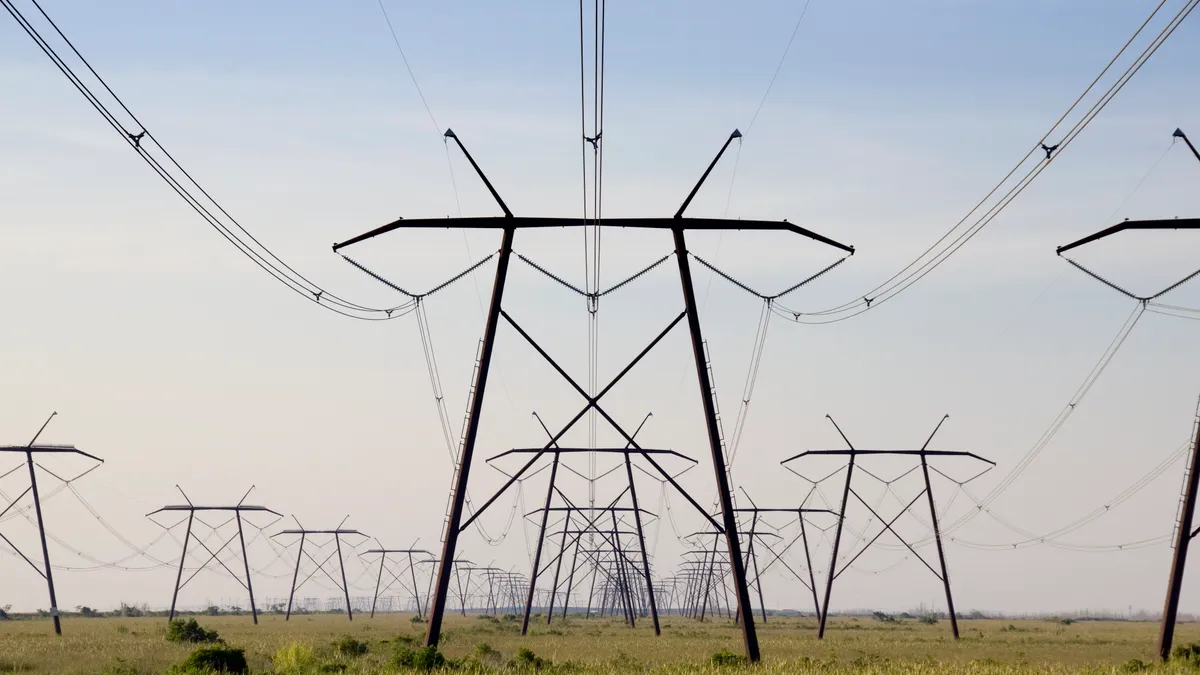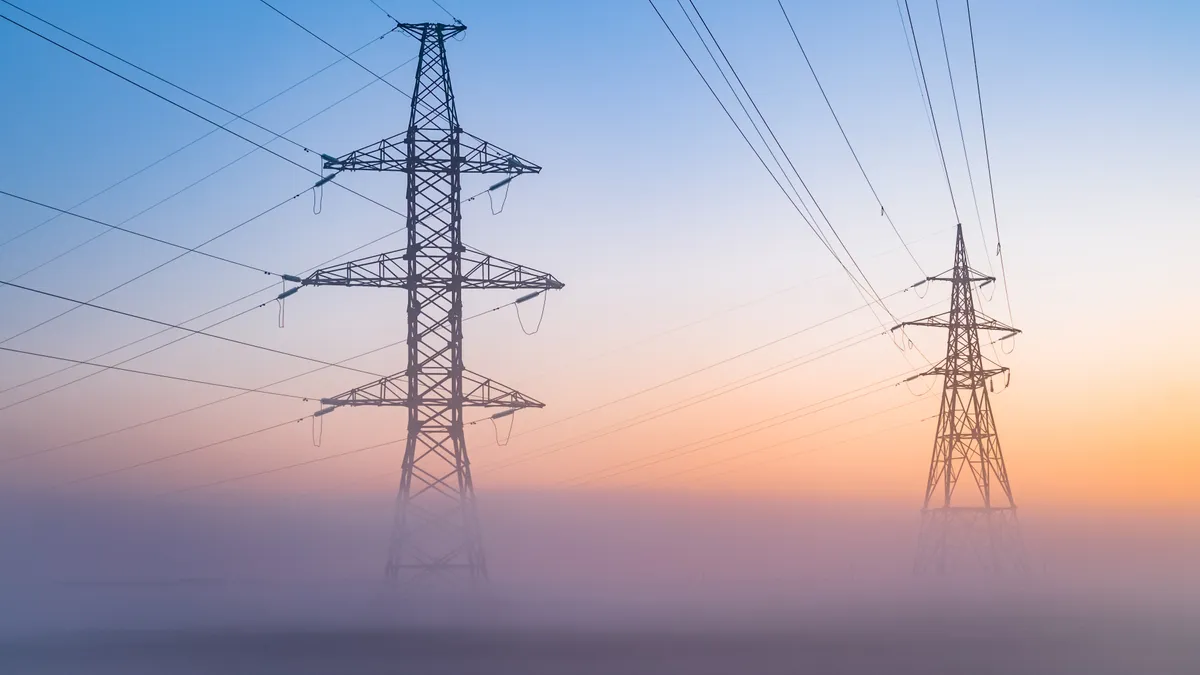Across the United States, the general trend is toward clean energy resources and away from carbon-emitting generation. But in some states there is a sense that regulators and utilities are not moving fast enough — leading to ballot initiatives that could abruptly change the course of state policy.
Next week at the polls, Arizona and Nevada voters will consider a 50% renewables standard. Washington voters could be the first in the US to adopt a carbon tax (previous efforts failed). And again in Nevada, voters will consider doing away with monopolies and moving to a competitive energy market.
Utilities in each state have raised concerns about the measures, but according to J.R. Tolbert, vice president of state policy at Advanced Energy Economy, advocacy groups may increasingly turn to the ballot box if they do not believe they are seeing progress.
A ballot question "allows advocates to avoid many of the obstacles that exist in state legislatures and regulatory commissions across the country and in theory puts citizens on the same footing as their utilities," Tolbert told Utility Dive.
"They all have the opportunity to reshape each of the states' electric systems."

J.R. Tolbert
Vice President of State Policy, Advanced Energy Economy
But they can also lead to drastic changes in policy and higher prices, argue utilities.
Arizona Public Service sent a statement to Utility Dive arguing the measure would "dramatically increase electricity bills," and utilities in the two other states with ballot questions raised similar warnings. Avista warned of "unintended consequences without a fully-informed analysis of the policy" should the state adopt a carbon tax. NV Energy called the deregulation issue "risky and costly."
So what to make of ballot questions as a tool of clean energy advocacy? That's a tricky question, said Tolbert.
"Ballot measures are certainly a strategic approach to expanding clean energy on the electric grid in the states," he said. But ultimately it will come down to the details and execution. "The implementation of these initiatives is absolutely critical," Tolbert said.
For electric utilities, ballot initiatives pose the threat of abrupt change in a sector where every shift in policy is typically under agonizing scrutiny.
The Edison Electric Institute is opposed to Proposition 127 in Arizona and Question 3 in Nevada, and did not specify a stance on the others. But the group, which represents investor-owned utilities, appears skeptical of ballot initiatives in general.
Regarding Nevada, EEI spokesman Jeff Ostermayer told Utility Dive in an email that it is "unprecedented for a state to restructure its electricity market through a ballot initiative, which is unsuitable for resolving complex and highly technical issues."
On the Arizona issue, EEI points out that electric companies are already committed to clean energy in the state. "Proposition 127 is the wrong way to set energy policy," Ostermayer said, on top of fact that it would "raise electricity prices and constitutionally anchor the state to specific technology.”
Tolbert predicts RPS measures in Nevada and Arizona will pass, while in Washington the question may be too close to call. "They all have the opportunity to reshape each of the states' electric systems," he said.
Washington Initiative 1631
Washington is nothing, if not persistent. Despite two previous rejections of a carbon tax, voters will consider the idea a third time.
Initiative 1631 would set a carbon price of $15/metric ton on emissions from large polluters beginning in 2020 with a $2/ton annual increase until the state's 2035 greenhouse gas goals are met and compliance with 2050 goals appears likely. But will the third time be the charm?
A 2016 ballot question seeking to establish a carbon fee received only about 40% support, and a subsequent attempt in the legislature ran out of steam. If voters in Washington pass the measure, the state would be the first government to establish any sort of carbon tax by referendum in the world.
"The devil is in the details, and they've had a hard time passing it in the legislature and on the ballot in recent years."

J.R. Tolbert
Vice President of State Policy at Advanced Energy Economy
Two public utility districts in southeast Washington oppose the initiative, however, claiming the carbon fee would lead to significant increases to their power prices, according to the Tri-City Herald. And while Avista says it is staying out if the debate and leaving it up to voters, the utility also predicts large rate increases for gas and electricity customers if the measure passes.
"Climate change is a complicated policy issue, and because the policy will affect the entire economy there can be unintended consequences without a fully-informed analysis of the policy," the company said in a statement to Utility Dive. "We feel that addressing climate change in a way that balances financial impacts and a desire to reduce greenhouse gas emissions is best addressed by the legislature."
According to Avista, in the first year of a carbon tax electricity customers would see a 5.6% increase in bills, and gas customers would pay 9.3% more. And the increases continue from there, the utility says.
Tolbert says the Washington measure is difficult to predict.
"If you generically polled the public and asked if they should act on climate change and reduce emissions, the polling looks great," said Tolbert. "The devil is in the details, and they've had a hard time passing it in the legislature and on the ballot in recent years."
What do the polls say? In October, a statewide Crosscut/Elway Poll found 50% of registered voters supported the carbon tax, while 36% opposed the measure and 14% were undecided.
Arizona Proposition 127
There is a fierce battle underway in Arizona, where voters will consider a ballot initiative requiring the state to adopt a 50% renewable energy standard. There has been upwards of $40 million spent by the opposing sides, which makes an accurate prediction difficult.
"It's hard to know exactly where the public is at when that much money has been spent," said Tolbert.
Both sides are well-heeled. The ballot initiative is being funded by California activist billionaire Tom Steyer, and has been challenged by a utility-funded group called Arizonans for Affordable Energy (AAE).
Arizona Public Service (APS) has spent millions to oppose the measure through AAE, its political action committee. The utility says a 50% renewables mandate would lead to sharply higher electricity bills and could force the shutdown of its Palo Verde nuclear plant.
UNS Energy, which owns Tucson Electric Power, has registered its PAC to oppose the measure, Southern Arizonans for Responsible Energy. TEP argues that if Proposition 127 passes the average residential customer would see bills rise by $500 annually while businesses would see a more than $3,000 annual increase.
APS told Utility Dive that the company is "strongly opposed" to Proposition 127 because "it will dramatically increase electricity bills, kill thousands of jobs, eliminate millions in tax revenue, potentially increase carbon emissions in Arizona and make our state a less attractive place to do business."
APS also said the vote could endanger the viability of the Palo Verde Nuclear Generating Station, which in turn could mean the destruction of 3,000 jobs and tens of millions of dollars of tax revenue for Arizona schools and public safety.
Will it pass? A Suffolk University poll in late September found only about a third of voters support Prop 127, and almost 47% opposed it.
Nevada Question 6
Voters in Nevada will face two big energy questions at the polls. The first, Question 6, would require electric utilities to source 50% of their electricity from renewable resources by 2030.
Approval of Question 6 would increase the current utility requirement to get 25% of their electricity from renewables by 2025. Steyer is also backing the Nevada RPS campaign, though the Arizona efforts have been met with more controversy.
One reason there has been less controversy, is that NV Energy is already a leader when it comes to renewables: The utility ranks second in the nation for geothermal and fourth for solar power, and its ultimate goal is 100% renewables. Ballot initiatives must be approved twice in Nevada to be passed and this is only the first vote.
Despite that, NV Energy is cautioning voters that the question is "a deeply flawed" and "will have a negative effect on renewable energy development in Nevada."
Can the RPS survive an initial vote? A Mellman Group poll in April found strong support for the renewables standard, with 68% of voters in favor and just 20% opposed.
Nevada Question 3
In the second energy question on the Silver State ballot, voters will consider whether to eliminate energy monopolies. This measure has been much more controversial.
Voting "yes" on Question 3 would create a constitutional amendment in Nevada to do away with regulated energy monopolies and minimize regulation on the energy market. The original idea behind the ballot initiative was to encourage more renewables development. However, NV Energy, which serves 2.4 million of the less than 3 million people in the state, proposed a measure that would double Nevada's renewable energy — but only if voters reject that measure.
Voters in 2016 easily passed the amendment, but under state law constitutional amendments must be approved in consecutive elections. While NV Energy largely stayed mum during the last election, it has committed millions to defeating Question 3 in November.
The amendment "has the potential to dismantle an electricity system that already provides low costs, increased clean energy production, great customer service and industry-leading reliability."

NV Energy
If voters in November approve Question 3 for a second time, NV Energy, owned by Warren Buffet's Berkshire Hathaway, said it will not develop any more renewable power than is required by state law. The utility says it has been working with the Coalition to Defeat Question 3 to "make sure all Nevadans have the facts about this risky and costly Constitutional Amendment."
The coalition, for its part, argues the ballot approach to regulation "is especially risky because it’s a Constitutional Amendment, so when things go wrong, it would be very difficult and take many years to repeal."
No state has ever used a Constitutional Amendment to deregulate its electricity system, the opposition group points out.
According to NV Energy, the amendment "has the potential to dismantle an electricity system that already provides low costs, increased clean energy production, great customer service and industry-leading reliability."
What do voters think? There are two polls, and they give conflicting signals though one is more recent. A Suffolk University poll in July found 31% in favor and 46% opposed. The April Mellman Group poll mentioned above also asked voters about Question 3, and found respondents more supportive of deregulation: 54% in favor, 16% opposed and almost a third still on the fence.



